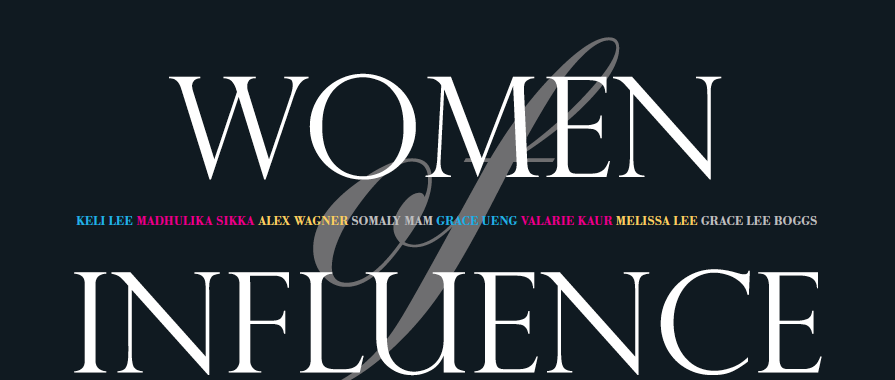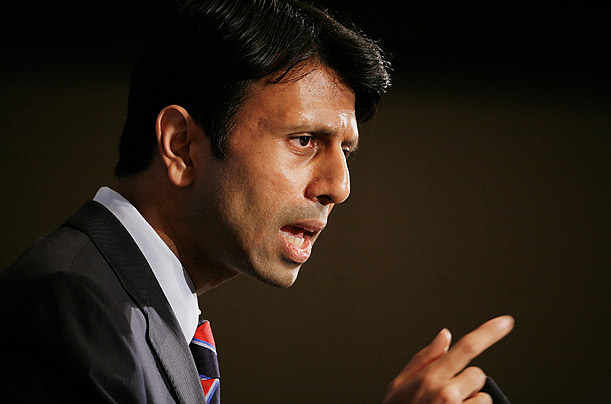Article: WOMEN OF INFLUENCE
ISSUE: FALL 2013
Influence comes in many forms, from high-profile advocates who are shaping ideas on an international stage to local heroes who are breaking barriers and defying expectations in their own communities. In our inaugural series celebrating influential Asian American women, Audrey Magazine highlights eight newsmakers, activists, leaders and trailblazers who encourage us to pursue our dreams, explore the unknown, and stand up for those without a voice.
CLICK HERE FOR MORE ASIAN AMERICAN INFLUENTIAL WOMEN!
by Ada Tseng
ALEX WAGNER
Host of MSNBC’s NOW with Alex Wagner
If two Fulbright scholars from Burma have a daughter, and this progressively minded woman, who worked at the historic nonprofit American Association of University Women (AAUW) to empower young girls, procreates with a top U.S. political strategist who worked on Ted Kennedy’s and Bill Clinton’s campaigns for president, you might just end up with someone like Alex Wagner, the host of MSNBC’s daily political opinion program NOW with Alex Wagner.
According to Wagner, her interest in journalism started “in utero,” and she worked on her school newspapers from elementary school all the way through college. Politics also runs in her bloodstream, and early memories of her father include him coming home every night from the Ted Kennedy campaign, immediately picking up the phone and asking for the poll numbers of the day. “When I was little, that’s how I learned to answer the phone,” says Wagner. “I’d stand on the chair in the kitchen to pick up the phone, and I’d say ‘Give me the numbers!'”
There was always a healthy amount of debate at the dinner table, a skill that would prove helpful many years later when she launched her own show. In addition to showcasing a young, diverse female voice, NOW with Alex Wagner values Wagner’s unconventional broadcast background: she worked on music and cultural magazines before becoming the cultural correspondent for the Center for American Progress; executive director of the advocacy organization Not on Our Watch, started by the likes of George Clooney, Brad Pitt and Matt Damon; White House correspondent for Politics Daily; and then a contributing analyst to MSNBC’s Countdown with Keith Olbermann and The Last Word with Lawrence O’Donnell.
NOW highlights issues close to Wagner’s heart, including income inequality, social mobility, immigration, surveillance and national security, but it’s important to Wagner to make news interesting and accessible to a wider audience – whether it’s having openly gay Speaker of the New York City Council Christine Quinn come on to talk about how even conservative New Yorkers are congratulating her on her marriage, or booking untraditional guests like Questlove from The Roots to talk about his reaction to the Zimmerman verdict. “We are all part of the national dialogue,” says Wagner. “It’s just that some voices are heard more than others.”
In 2012, Wagner was given the opportunity to sit down with Burma’s Nobel Peace Prize Laureate, Aung San Suu Kyi, as part of Amnesty International’s Rights Generation town hall event in Washington, D.C. Wagner’s family on her mother’s side are Burmese exiles who were granted safe passage to the U.S. when her grandmother was hired to head the East Asian books department at the Library of Congress. Decades later, Wagner was able to take her 96-year-old grandmother to meet the iconic pro-democracy leader.
“I don’t want to take away from the fact that it’s a difficult time for Burma,” says Wagner, “but just the fact that Aung San Suu Kyi was released [from 15 years of house arrest], then the fact that she was in the U.S., and then finally that my grandmother could be in the room, alive, to see her gain freedom and have her granddaughter interview her – I never imagined it in my wildest dreams.”
Wagner credits her grandmother, who used to take her to Burmese Democracy Movement protests as a kid, for gifting her a passion for activism and advocacy early. “She was always trying to get arrested,” says Wagner. “Nowadays, more people know about Burma, but this was a time when unspeakable atrocities were being committed against ethnic peoples of Burma, and nobody was paying any attention. My grandmother was out there waving her signs, and she got arrested when she was 84 or 85.” Wagner laughs. “I remember my mother was so indignant, but my grandmother was completely unapologetic.”
It’s this type of political spirit that Wagner wants to inspire in her viewers. “I hope the show is a reminder of the importance of politics, service and democracy, and that it will encourage more people to believe in the process and participate,” she says. “It’d be great if someone thought, ‘I want to make a difference in that issue, so I’m going to run for PTA to get involved in these questions of education, I’m going to march against this cause, or I’m going to get involved in a death penalty case.’ I hope we promote awareness and optimism about the power to change.”
WEB EXCLUSIVES
On how her parents met
My mother is a Burmese exile. My grandfather was involved in the Burmese government before the military coup, things became very difficult for my family in the early 1960s, and they needed to get out of the country. Both my grandmother and grandfather had been Fulbright scholars who came to the US in 1950s, and my grandmother had done her master’s in Library Science at Catholic University in Washington DC, so they contacted their circles to see if they could get assistance getting out of Burma. The US Library of Congress actually needed someone to be the head of their East Asian Books Department, so they arranged all the papers and necessary visas for my grandmother and uncle and mother to get safe passage to the US. But it took 3 or 4 years for them to get out of the country, and in an absolutely stunning move, the Library of Congress kept the position open for years so that my grandmother and family would have a place that they’d be able to come in the US. My mom and uncle went to college in US, and my grandfather eventually joined them a few years later. My mom was very politically-minded in college and eventually ended up in DC working for Teamsters labor union, and my dad was person who hired her.
On starting NOW with Alex Wagner in 2011 in the midst of the presidential campaigns
[MSNBC president] Phil Griffin is kind of a maverick. He is just went for it. He said, “Let’s just do this thing at noon.” He was upfront. “You’ll probably suck for first six weeks and the first six months, and then you’ll figure it out.” [laughs] He had a very open and adventurous attitude toward it, and since he is the president of the network, if he has that attitude, it’s contagious. You think, let’s give it a shot!
On some levels, it’s harder to start a show during a presidential campaign, but in other ways, it’s easier, because it’s a pre-determined set of stories. Now, we’re in a different period, so the way we go about picking stories is like developing a different muscle group. In some ways, it’s scary and difficult, but if you’re curious about world, it’s a very fortuitous time to be in news.
On learning to share her political opinions on air
There’s a difference between having your point of view in a discussion with your producers and saying it on the air, and it’s taken some time and experience to figure it out. Sometimes I have said things that perhaps were not the most thought-out, but as I’ve gotten more comfortable with the medium, my producers and I have become more comfortable showcasing my opinion and writing scripts that are reflective of my point of view. But at same time, it’s important for us to allow room for debate and discussion that gives ample time to people who have different points of view. As much you may hear my opinion and understand where I’m coming from, I try not to make it so that I’m litigating my point of view — that my view is the only view. Preserving that is a really important part of the show.
Who influences you?
Nelson Mandela is a huge inspiration. I was just looking through biographies of him a couple months ago, when we thought he might pass way, and his life is so incredibly extraordinary. His perseverance and belief in a hope unseen. That’s the story of Mandela that I think everyone should carry with them at all times.

BUY THE FALL 2013 ISSUE FEATURING OUR WOMEN OF INFLUENCE HERE.











